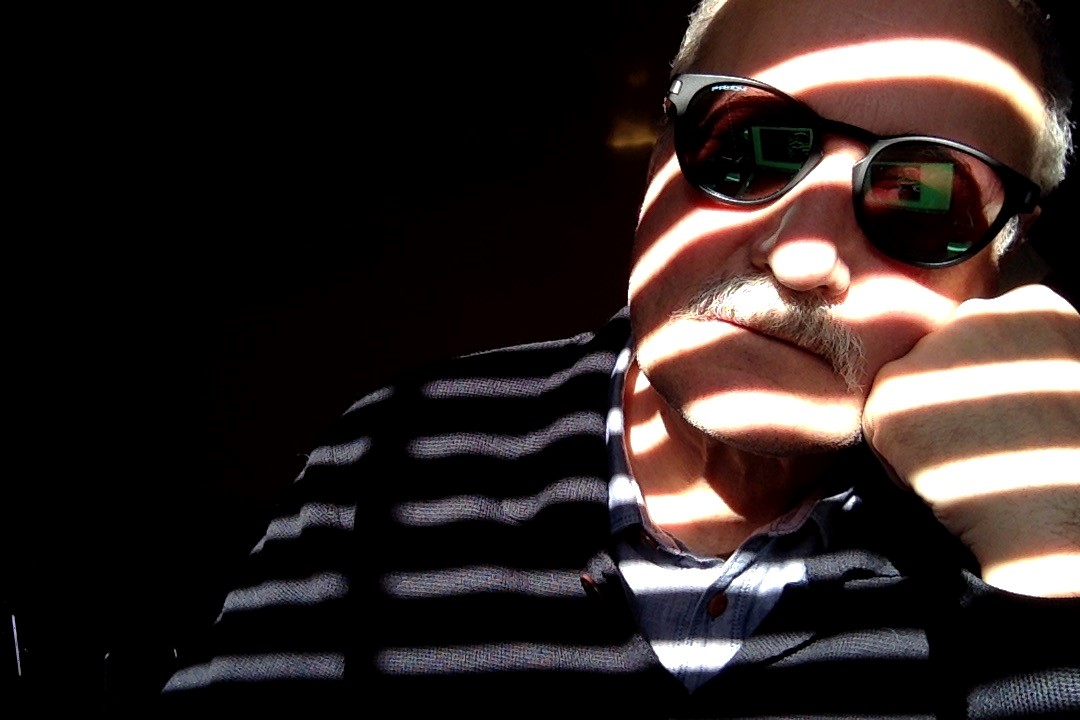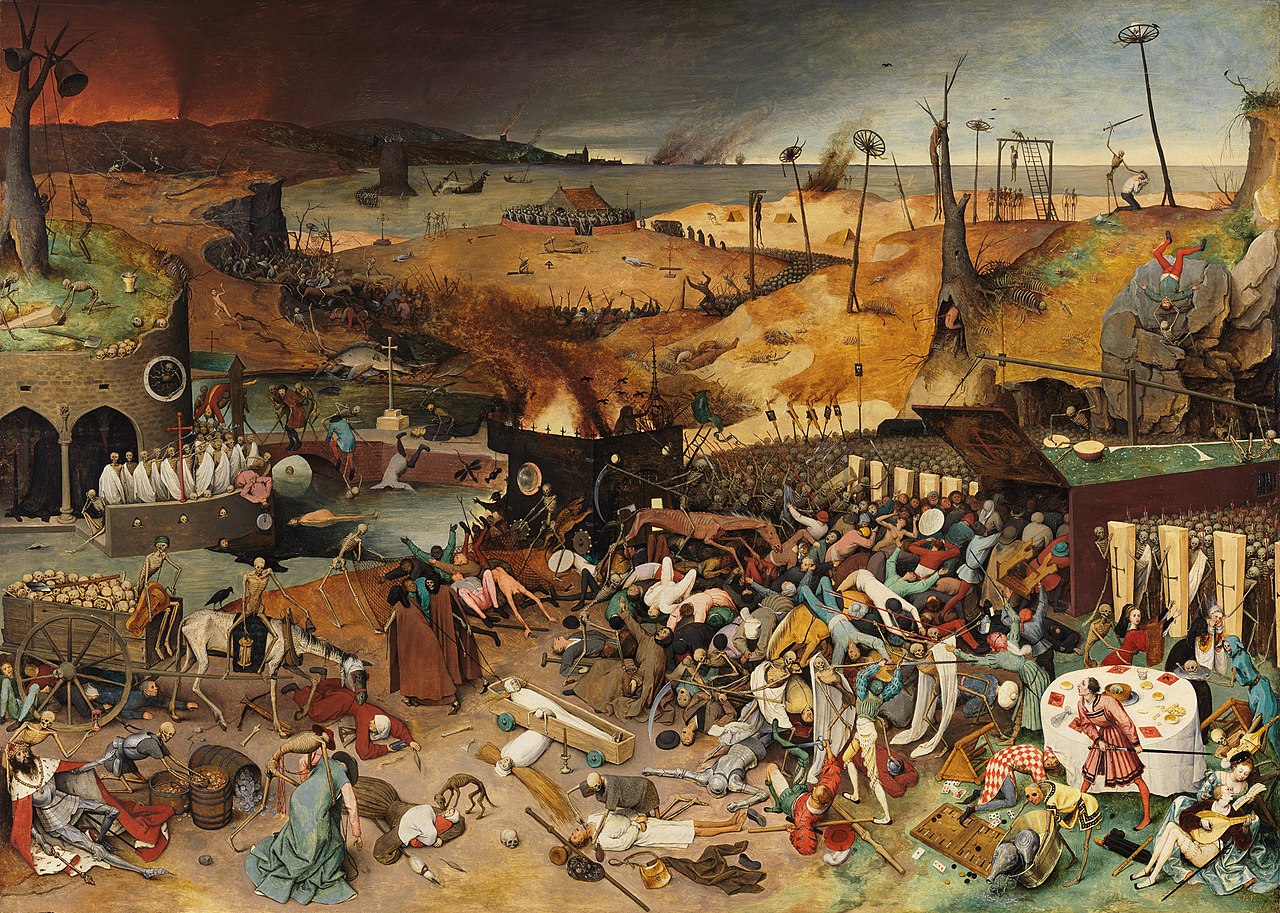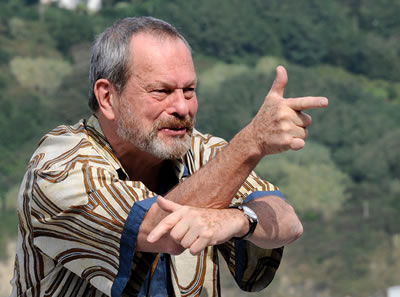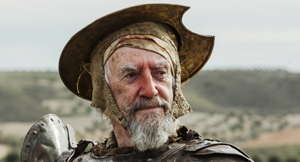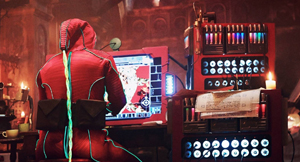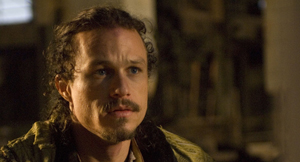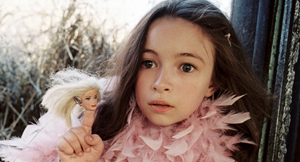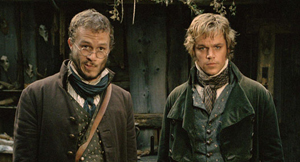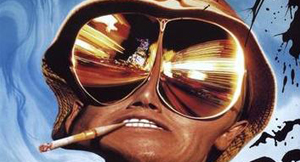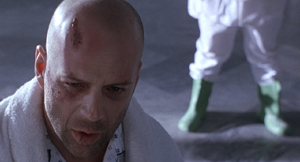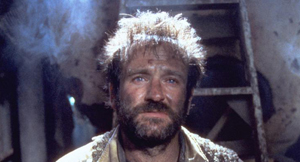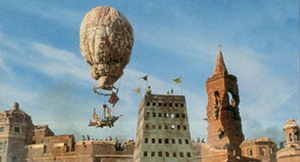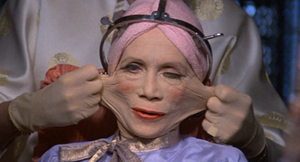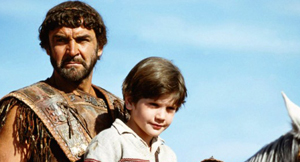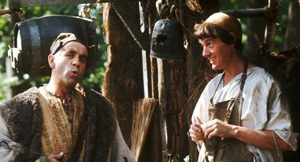On the day of the world premiere of The Imaginarium of Dr Parnassus, at the Cannes Film Festival, there was a press conference. In attendance were Andrew Garfield, Lily Cole, Terry Gilliam, Samuel Hadida, Verne Troyer, and Amy Gilliam. Questions were posed by the chair of the event and a number of journalists from around the world.
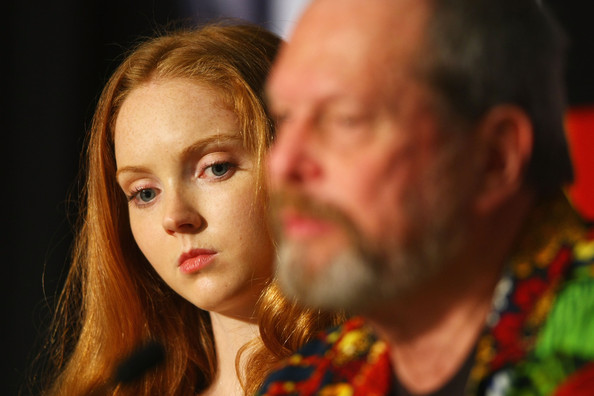 |
Lily Cole with Terry Gilliam |
(To Gilliam, A) Is your father as difficult as we heard he was?
No, not at all!
(To Gilliam, A) Being a producer, tell us a little about your experience?
It was fantastic. It was pretty incredible to work with your father in a producing capacity. It was not easy, especially when you go home at night and your father at the dinner table wants to talk about the film, so you can never have time off. Family gatherings are always about work. But being on set and working day-to-day with him was amazing. We get on incredibly well. It gets difficult when you have to try and tell him no. As he is older than me, wiser, and obviously more mature, it gets difficult, and we have our disagreements. He advises me that he knows best. I tell him he doesn’t.
(To Gilliam, T) What went through your mind when you knew about Heath Ledger’s passing, and what were the other options you considered before casting Depp, Law and Farrell to replace him?
The first, and obvious, choice to me was to close the film down. I didn’t see how we could finish it without Heath because we were in the middle of production, he had done about half of his role, and that was it. Fortunately, I was surrounded by really good people who insisted that I couldn’t be such a lazy bastard and I’d better go out and find a way of finishing the film for Heath.
We discussed for a long time whether one actor could do the part and I felt that that was impossible. I didn’t think it was respectful, and I didn’t think it would work at all. And because we had the magic mirror, and Heath goes through it three times, we thought OK three actors, that would be the way to approach it, it’s much more interesting and surprising.
So I started calling friends. Johnny Depp said I’m there. Basically I was calling people who knew and loved Heath. It had to be in the nature of what we were doing. We ended with Colin, Jude and Johnny to play the parts. Everybody in the cast and everybody in the crew was determined that this film would be finished and everybody worked longer, harder, and somehow we got through it. It was really people’s love for Heath that propelled this thing forward.
(To Gilliam, T) One of the things that happened backstage at the Oscars was that some of us had a chance to meet the Ledger family. Their humility and strength was astonishing. They were eager to find out what you were going to do with Heath Ledger’s final performance. If curious if you liaised with them and discussed your plans with them, because they seemed really excited at the prospect of seeing this film and having this treasure from their family member maintained for posterity. I’m curious if you had a relationship with them on that regard and what it means to you to present this film for them.
When Heath died, I went down to LA and spent a day with the family. We started crying and then we start laughing. It’s going to be a positive thing, a celebration for Heath, and that’s what we did. I didn’t spend a great deal of time talking about my plans exactly, but they knew that Johnny, Colin and Jude were going to come on board and they were delighted. So they have been completely supportive, yet they haven’t seen it yet. There’s still a surprise for them.
What was important for me was just to make the film and have Heath’s last performance up there alive and well. I think they’re going to be delighted by it. I’ve been very lucky because even though Heath died over a year ago, I’ve been working with him in the cutting room – so he’s been alive and well. So it’s been completely different for me. He doesn’t seem that long departed from us. He’s just the guy I work with daily.
Could you tell us about the working experience with Mr Ledger. What was he like on set in his character Tony?
Gilliam, T: Ask the others, I’ll just say the same old thing. I’ll just say he was wonderful, he was brilliant, he was fantastic.
Garfield: I don’t think you’ll get much differing from him being just a wonderful, beautiful, soulful, energetic incredible presence. And generous.
Cole: I’m sure you all saw that come through in his personality in the film.
Gilliam, T: I think what was interesting on this film, Heath was enjoying himself so much, and he was adlibbing a lot. I don’t normally allow that much adlibbing in the film, but Heath was just brilliant at it. He got everybody else going. Andrew, who was nervous about adlibbing, suddenly was in there. Everybody was just energised by Heath. He was exhausting. He was coming up with new ideas, every minute. It was a joy to watch this part just blossom – so much more extraordinary than what we had actually written, and that just passed on to everybody else. Everybody’s part grew because of Heath’s energy.
It enthused everybody so much, and it just carried on. It was interesting to watch people filling the void that Heath left. Andrew’s part was a very underwritten part. It just grew I just felt that. Everybody was just growing to make sure there was no void left in the space that Heath had left us.
(To Cole and Garfield) Was it difficult for the two of you when Ledger passed away?
Cole: The whole experience is weird and difficult, just because you are mourning somebody at the same time you are immediately going back to work. And it’s such an unusual environment where you are presented with actors who are playing reminders of that character and that person. I certainly found it weird doing that for the first time and I think it’s a testament to how good those three actors were also at playing Tony’s character. Of course the whole experience was strange and weird, but as Terry said there was a kind of really good hard love and understanding between cast and crew as to why we were doing it. That just carried it through, and made it pleasant.
Garfield: It wasn’t only difficult for us to be working with the alternate Heaths, the alternate Tonys. But it was extremely difficult for the three guys who came in because his shoes were so big (not literally!). Well, actually he had quite big feet – one of the things I’ll remember. It was extremely difficult, generous, and brave of them to step into this huge void of energy that Heath left.
Cole: And they were still friends of his so also they were missing him too.
Garfield: It was a very tender situation. That we can only get through because we were all touched, respected and moved by Heath so much. We wouldn’t have been able to get through it unless he’d had that effect on us.
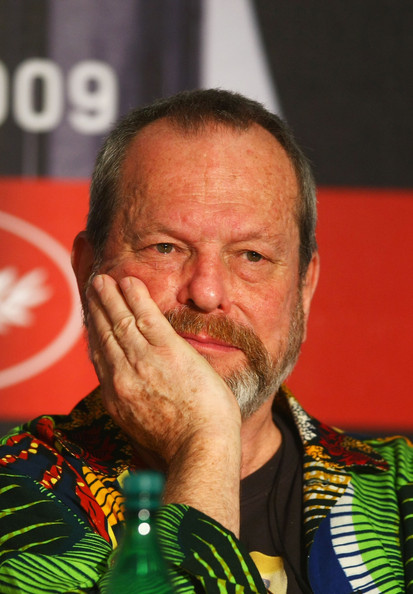
(To Gilliam, T) I really liked your concept of the imagination or storytelling as the opposite of evil. How did you get this concept, and how did the genesis of the story happen from these ideas, and second what you think of this idea outside the movie?
I’m going to work backwards because unfortunately storytelling is what journalism has become. It isn’t as clear that storytelling is good and not storytelling is evil because we are living in an age of storytelling. Big lies are being told daily. So I’m not as clear in my own thinking about the good and evil of storytelling.
Storytelling and the restructuring of the world through stories is vital and in a sense what I’m talking about is using ones imagination to expand the possibilities and the view of the world that people have. That’s what is important to me. The genesis was basically I just decided that I wanted to do something original instead of adapting books that I loved. So I got Charles McKeown, who had written Munchausen with me, and written part of Brazil with me, and we hadn’t worked together for quite a long time. I thought this would be fun to go back, and try to get a compendium of all the things I was interested in. From Python cartooning to 12 Monkeys – everything. That’s how we started – and I basically started rummaging through my drawers – in my desk, not the ones under my jeans, finding old ideas that were never used, starting with that, and little by little the story began to grow. The first image was the wagon going through the streets of a modern city – this ancient structure hauled around by horses.
The strange thing brought into the modern world, that was the beginning. I’ve always loved theatres, so let’s open it up to reveal a theatre. We started from that, and little by little it grew. The idea of choice became important, because I think we are living in a time with too many choices. How many types of breakfast cereal, how many types of toilet paper do you need? We got it down to a simple one, in terms of good and evil, to simplify life. It was nice to work that way, where you are not exactly clear where you are going, letting it grow in an organic way. It continued to grow, and what was extraordinary about this film for me, with Heath’s death, it had to keep growing.
It had to change to deal with reality, no matter how much imagination that’s out there. It’s the thing that gets you through the worst sides of reality. That’s what happened on this film, so the film is very much… the ideas of the film are what the film is. One and the same thing.
(To Gilliam, T) Your movies are normally very complex. Was there a time you thought you weren’t going to pull it off?
Hadida: Since Terry sent me the script and I read it, I asked him, had he in his mind a vision of all these worlds – because I knew it would be complex. He told me: instead of speaking about that, let me come to show you my artbook and all the storyboards I have made of the movie and all the design. Because it’s rather complex, but it’s coming back to my roots and having done everything by myself because this is exactly how I want to do it.
When I saw it, I was completely seduced and I said yes it can be done because he told me he was not going to use completely crazy technique – everything is possible. I have done my research and everything you are going to see it’s feasible. When you work with Terry you go to the journey and you say I’m on it. And then you have your movie.
Gilliam, T: And then you’re stuck!
I couldn’t help but see certain parallels between Parnassus and Gilliam. Have you ever made a pact with the devil to get a movie made?
Gilliam, T: I just made a movie with Sammy – c’mon!
Hadida: But we got a movie at the end!
(To Troyer) How did Terry convince you to put on all these incredible outfits
Troyer: Easy – I wanted to do the film definitely because Terry had me in mind for that part so I was just very honoured and pleased to take part. Different costumes I got to keep, so I’m going to be dressing up.
Gilliam: I was getting really bored watching Verne do silly comedies all the time, I thought it was time to show him that he is a brilliant actor, and he is wonderful in this film. We actually wrote it with Verne in mind – so, Verne, you got stuck with it
Troyer: I’m glad.
In many sequences in this film the environments you are in are not actually there – how much of an acting challenge was that? For Mr Gilliam, do you present the actors with storyboards , or pre-visualisations or do you browbeat them into on faith as to what it will look like?
Gilliam, T: I don’t know what I’m doing, c’mon let’s be honest. We tried to build partial sets so there is something there to touch, to fall down on and hurt yourself on that’s the important thing so if you actually feel something I think it’s the beginning. Lily got stuck more on blue spaces on wires floating through the air.
Garfield: I had cut-out trees. It was difficult, I never really done that before so it was tough but the fact that you are in a room with one of the greatest imaginations living… God that’s awful, I didn’t mean it. Actually, he’s an awful director – he was terrible to work with. It inspires you, it makes you freer, you to start to care less and you start to mess around more. It’s nice having a partner for that, which Terry was.
Cole: It’s tricky with the bluescreen. It actually makes the process interesting because you really are depending on your imagination to respond to things you are pretending to see things that aren’t there, and ignoring things that are there. In the context of the film that is largely about imagination, as Andrew said, working with Terry was so imaginative, I felt that was a nice, appropriate, playful experience.
Gilliam, T: You have not seen what we have done with you two, they haven’t seen the movie yet. Aren’t they going to be in for a surprise? I lied to them about the environments.
Garfield: We’ll be kissing dinosaurs…


